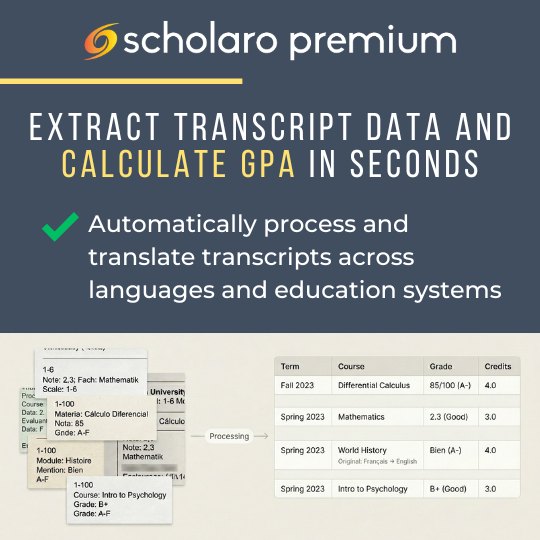Most people probably do not know who Dr. George Barker Jeffery was. He was a prominent early-20th century mathematical physicist, having done research in the field of mathematics since his early twenties. Those who have studied the Theory of Relativity might recognize his name because Dr. Jeffery is also famous for having translated groundbreaking essays on the Theory of Relativity. He was the initial translator of the works of Albert Einstein and Hendrick A. Lorentz, among other physicists. In addition, Dr. Jeffery was a member of the Royal Society. He contributed much to the world of education, but surprisingly, research and translating scientific papers were not Dr. Jeffery’s only contributions to the world of education.
In 1949, the British Secretary of State for the Colonies invited Dr. Jeffery, who was then serving as director of the Institute of Education at the University of London, to visit the West African nations of The Gold Coast (now, Ghana), Nigeria, The Gambia, and Sierra Leone. The goal of his visit, as instructed by the Secretary, was to help the leaders of these nations develop a standardized examination system that would better fit the educational needs of these countries.
Dr. Jeffery finished visiting the West African nations in 1950, and not long after that was when he constructed his proposal for this new standardized system. In “The Jeffery Report,” the blueprints for the West African Examinations Council (WAEC) were laid out. It provided the framework for how the Council would operate in each country. The governments of West Africa fully supported the Jeffery Report, and every one of Dr. Jeffery’s recommendations were enacted. By 1951, the Gold Coast became the first nation to pass the WAEC ordinance. The governments of Nigeria, The Gambia, and Sierra Leone all signed their own ordinances not long after. Dr. Jeffery attended the first meeting of the Council in 1953, where the Committees of the Council were established. Dr. Jeffery would live for another four more years before passing away at the age of 65. He died 17 years before Liberia joined, in 1974.
Today, WAEC holds a great deal of significance with regards to West African primary and secondary education. It has outlasted the General Certificate of Education Ordinary and Advanced levels (O and A Level) systems in Ghana, Nigeria, and Sierra Leonne. Although each country also offers technical, vocational, and teaching credentials at the end of secondary education, WAEC provides the examinations that are necessary to apply to colleges and universities both at home and abroad.
In Ghana and Sierra Leone, students will complete the Basic Education Certificate Examination (BECE) upon completing junior secondary school, which is in the students’ ninth academic year. Nigeria has the Junior Secondary Certificate of Education (JSCE), and Liberia has the Liberia Junior High School Certificate Examination (LJHSCE), both of which are also completed after year nine. Although, The Gambia offers the Gambia Basic Education Certificate Examination (GBECE) upon completion of year ten. All of these will grant access to senior secondary school.
Students in Ghana, Nigeria, and Sierra Leonne will complete the West African Secondary School Certificate Examination (WASSCE) to earn a completion of senior secondary education that allows for admission to colleges and universities. Nigeria, however, simultaneously offers Senior School Certificate Examinations (SSCE) that are administered by the National Examinations Council (NECO). The Gambia offers the Senior Secondary School Certificate, while Liberia offers the Liberia Senior High School Certificate Examination (LSHSCE) as their benchmarks for admission to colleges and universities. All senior secondary examinations are completed after the twelfth academic year.
WAEC will issue statements of results that indicate both the date of completion and the exam scores. One other additional document is the scratch card. It’s a security measure. When students wish to send copies of their results to schools or credential evaluating agencies for then applying for school or work, the scratch card can be provided as well. It contains information on how to access a given student’s exam results directly from any WAEC official website. The information remains hidden until the individual scratches off the opaque covering material, much like how a scratch-off lottery ticket works, and the card information is useful for up to five times in most cases. Admissions counselors and credential evaluators rely on the scratch card to provide a primary source verification of results from WAEC directly, which eliminates any possibility of documents being fraudulent.
When one thinks about how universal and reliable WAEC has made itself, it becomes apparent that the Council is one of Dr. Jeffery’s most important contributions to the world of international education.

 How to Pay for College in 2026: Costs, Aid, and Smart Planning
How to Pay for College in 2026: Costs, Aid, and Smart Planning
 The Role of Robotics in Developing Future-Ready College Students
The Role of Robotics in Developing Future-Ready College Students
 Undergraduate Research: How Students Join Labs Across Campus
Undergraduate Research: How Students Join Labs Across Campus
 Using AI to Succeed in College Science Courses
Using AI to Succeed in College Science Courses
 What Steps Should You Take to Become a University Tutor?
What Steps Should You Take to Become a University Tutor?
